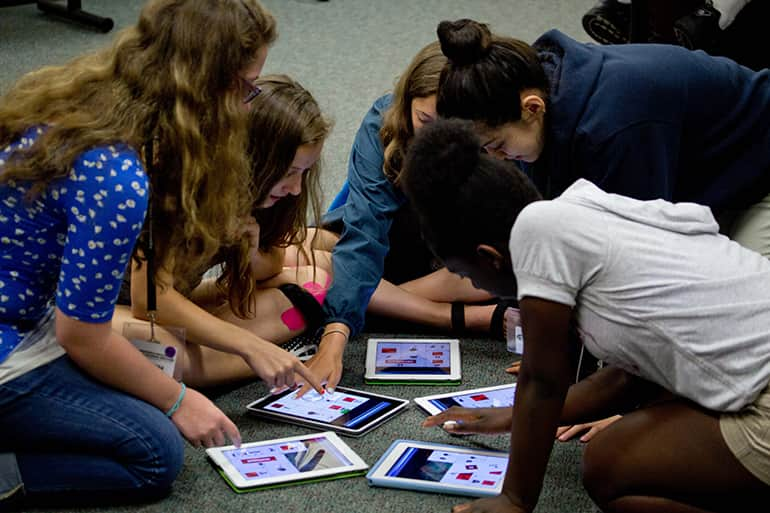It's a fact: men and women are different. But at times, the reasons behind those differences aren't purely biological. Instead, they can often be attributed to social bias. For example, when it comes to video games, do you think that men or women advance faster when playing, and if so, why?
That is the question Rabindra Ratan, assistant professor in the Department of Media and Information at ComArtSci, along with first-author Cuihua Cindy Shen at the University of California, Davis, and other co-authors, tried to answer with their recent research.
Inspired by the stereotype that men naturally excel at video games more-so than women, the research team set out to examine the difference in video game advancement between men and women. They used player data pulled from two massively multiplayer online (MMO) games - EverQuest II from the United States and Chevalier's Romance III from China - to test if the stereotype held true, and if so, why.
After reviewing the data pulled from 2007 MMO logs, the research team found the same pattern for both the United States and China: women advance just as fast as men.
"We found that if you do not control for the amount of time that they have played or other aspects of game behavior (such as guild membership), then it looks like men level up faster than women. But, when you do control for such factors, then the statistical difference between men and women goes away," said Ratan. "This suggests that the perception that women are not as good at video games as men is simply driven by other factors besides gender, such as the fact that they tend not to play as much as men."
Indeed, gender bias exists across many cultures for a variety of reasons, and many have social implications that go unnoticed. According to Ratan, while the stereotype that women aren't as skilled at video games as men isn't necessarily true, it does have a social impact.
"The irony is that one of the reasons women do not play as much as men might be the perception that they do not play as well as men. So this is a vicious cycle. There is an effect called stereotype threat, which says that when you know about a stereotype that applies to you, it affects your behavior. If women know about the stereotype that they do not play well, then this might actually reduce the likelihood that they play well," said Ratan. "This is consistent with other research that I have done which also supports the case that stereotypes about women in video games are self-reinforcing."
The research completed by Ratan and co-authors has shown that video games are part of an important social dynamic between men and women. The implications go beyond gaming itself, ultimately reinforcing the need to promote gender equality throughout our society. "Playing video games leads to many positive cognitive, social and psychological outcomes, like increased persistence in challenging tasks and enhanced emotional management skills. Video games are also a gateway to STEM fields," said Ratan. "If we want to promote gender equality in these areas of our society, then we must recognize that the stereotypes about gender and video game performance are not only false but are also harmful outside of gaming contexts."
Read the full case study and learn more about the research findings.
By Nikki W. O'Meara
